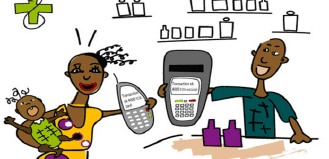By 2016, Ericsson has estimated, the m-commerce market will reach $800 billion worldwide, presenting a great untapped opportunity to drive activity and loyalty through mobile prepaid airtime.
Kenya, Uganda and Tanzania are already feeling the impact.
Ericsson Head of Mobile Commerce Sales Europe, Middle East and Africa (EMEA), Rajiv Bhatia, disclosed this at a mobile money conference in Johannesburg.
Airtime drives uptake
Airtime can be used as an incentive to drive the uptake and usage of mobile money services in countries where its growth has been sluggish.
Bhatia explained that operators and financial institutions could replicate the loyalty programme of credit card providers, through the use of airtime to encourage consumers to use mobile money.
“Airtime can be used to incentivise usage in several ways, such as encouraging people to have a minimum amount of money in their wallets and rewarding them with better data and airtime bundles for usage of their mobile money wallets,” he said.
He reiterated that Africa is a leading market for mobile money and that millions of people without access to banking services are signing up to mobile money services.
Operators and financial institutions are battling to trigger activity in dormant wallets.
Bhatia explained that the slow growth of mobile money in South Africa is a result of the expansive ATM and bank infrastructure, and how this network has enabled the population to access and remit cash.
Billions unbanked
“Yet there are millions more who are still unbanked. There are fantastic opportunities to grow this business, especially among the migrant population, which still uses informal means to remit cash.
“Banks should forge closer ties with operators, who have an expansive distribution network to encourage adoption and drive usage.”
Transparency, education and trust are key to growing the mobile money ecosystem in Africa, Bhatia stressed.
According to the World Bank, almost half the world’s adult population – some 2.5 billion people – are unbanked, the majority in emerging markets.
For countries where financial inclusion is low, mobile money solutions such as e-money accounts and e-mobile wallets offer a fast way to improve financial inclusion and close the gap.
Expansion of e-governance
In another development, Abuja has given all ministries, departments and agencies (MDAs) of federal and state governments till September 2014 to transact activities on the .ng platform.
Communication Technology Minister, Omobola Johnson, made the announcement at the African Domain Name System Forum held in Abuja recently.
She said it is compulsory for all MDAs to transact most businesses online through government portal to make it easy for Nigerians outside Abuja or the state to connect with officials online.
This will reduce corruption and also help to decongest the cities as well as bring governance closer to the people, she enthused.
Omobola, represented by her e-government Director, Tope Fashedemi, said the government has begun extending broadband across Nigeria to make e-governance hitch free.
Nigeria Internet Registration Association (NiRA) President, Mary Uduma, noted that the Domain Name Space (DNS) industry is a multibillion naira business yet to be tapped by Nigerians.
Resell .ng, make good money
“By registering just 1,000 firms or individuals on the .ng domain for just N100,000 per annum, a Nigerian domain name reseller will make N10 billion income,” Uduma explained.
She said 60,000 companies and government agencies have registered with the Nigerian domain name, .ng, but less than 50,000 are active.
She urged the unemployed to resell the .ng domain name and make good money.













